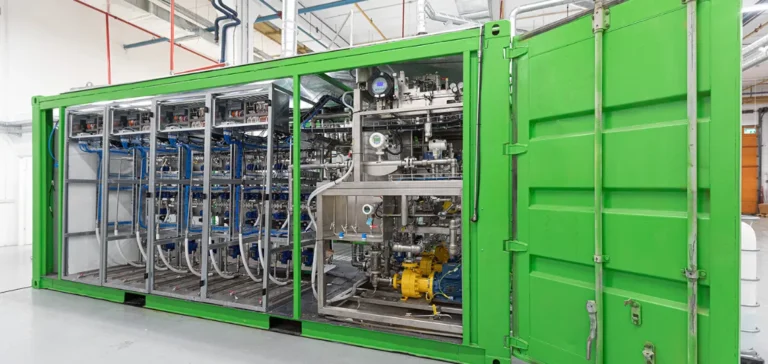The Japanese group Sumitomo Corporation, through its U.S. subsidiary Sumitomo Corporation of Americas, has confirmed a strategic investment in the American company Independence Hydrogen, which specialises in decentralized production and distribution of hydrogen across the United States. The deal aims to strengthen Independence Hydrogen’s industrial capabilities by supporting the expansion of its decentralized DeHy® model, enabling rapid market entry and improved cost control.
Local production and decentralized model
Independence Hydrogen, a privately-held company founded and managed by veterans, currently operates a facility located in Petersburg, Virginia, specialising in the recovery and repurposing of gaseous hydrogen previously vented as industrial waste. The gas is purified onsite to reach fuel-cell grade quality, making it suitable for sectors such as mobility, remote or critical infrastructures, logistics handling, and industrial gases.
According to Independence Hydrogen, adopting a decentralized approach notably helps address current reliability and cost concerns related to hydrogen transportation. The company also highlights the economic benefits of such a model to meet growing local demand without requiring heavy initial logistics investments.
A strategic alliance for commercial expansion
This investment by Sumitomo Corporation complements an initial funding round involving American investors Suburban Propane and Hivers & Strivers. The Japanese group considers that the business model proposed by Independence Hydrogen adequately meets the needs of a market currently seen as underserved.
“We firmly believe the decentralized approach developed by Independence Hydrogen will unlock growth in this still under-exploited segment,” stated Tsutomu Sakamoto, General Manager of the Energy Innovation Initiative Americas at Sumitomo Corporation.
Dat Tran, CEO of Independence Hydrogen, remarked that “Sumitomo’s deep and extensive experience in the energy sector, and particularly in hydrogen, represents a considerable asset to accelerate the development of our operations in the American market.”
Economic potential and targeted sectors
The gaseous hydrogen market is attracting growing interest from industrial players thanks to specific operational benefits: extended range, rapid refuelling, and consistent performance without loss due to reduced energy charge. The economic model proposed by Independence Hydrogen primarily targets key industrial sectors in the United States, such as supply chains, the automotive sector, and remote critical infrastructures.
Through this strategic partnership, Sumitomo Corporation continues a policy of targeted investments in alternative energies, seen as leverage points for medium- to long-term industrial and commercial diversification for the Japanese group.






















